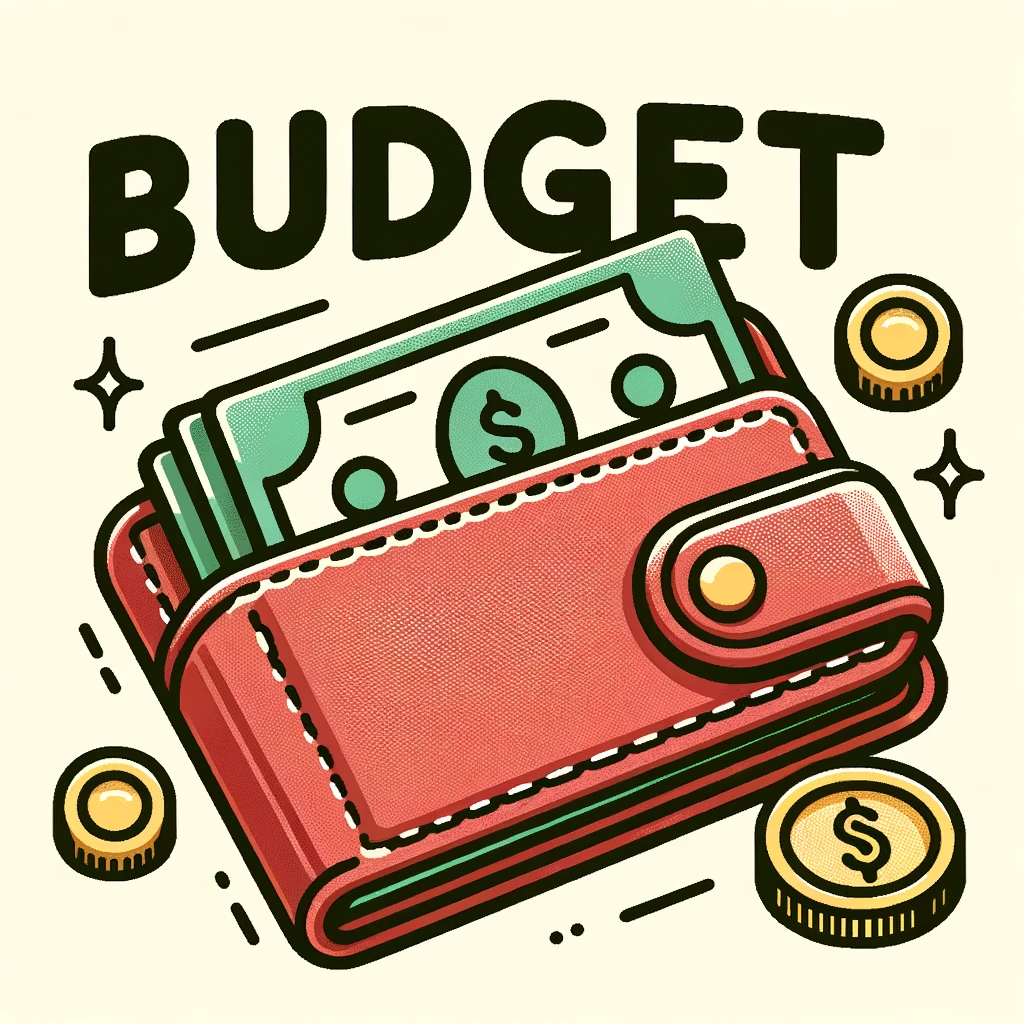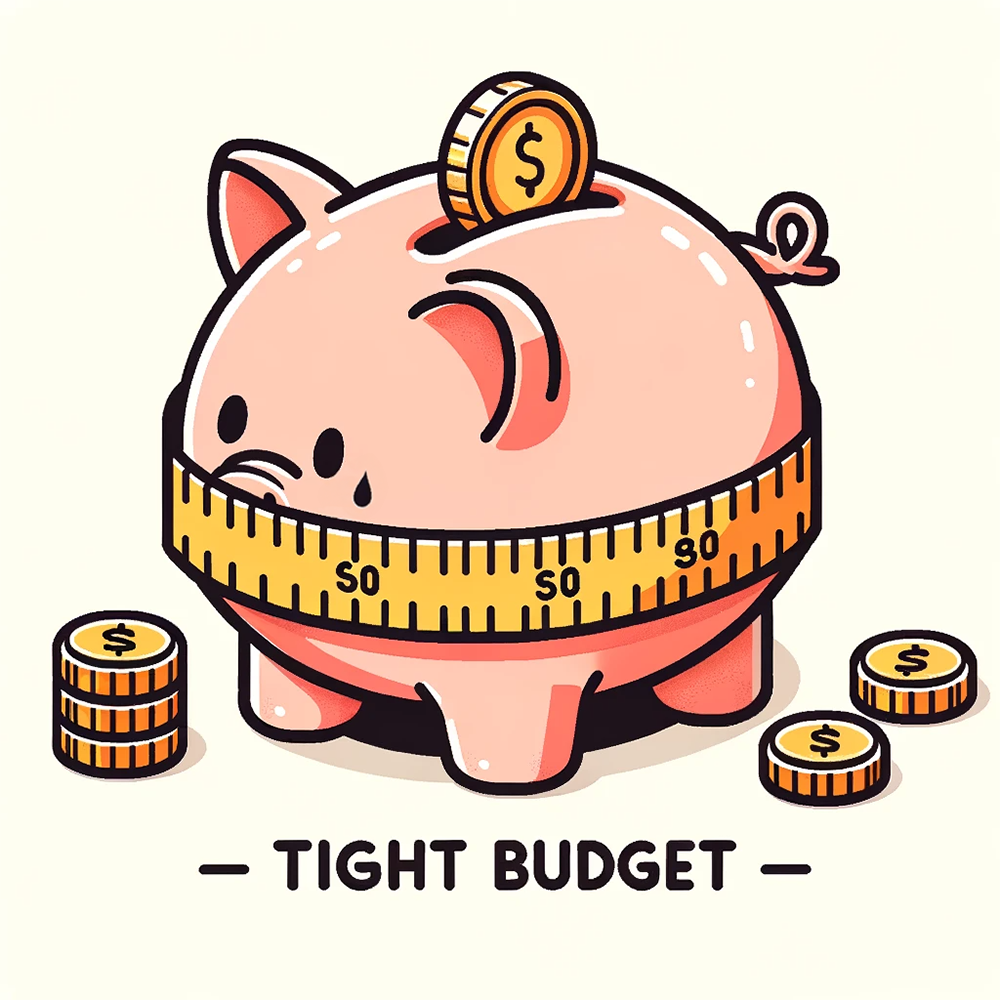Budget
Definition
Budget is a noun, adjective, and verb. As a noun, it refers to an estimate of income and expenditure over a specified period. As a verb, it means to plan or allocate financial resources. As an adjective, it describes something that is economical or low-cost.
Parts of Speech
- Noun
- Verb
- Adjective
Pronunciation
American English
- IPA Pronunciation: /ˈbʌdʒɪt/
- Respelling: BUH-jit
British English
- IPA Pronunciation: /ˈbʌdʒɪt/
- Respelling: BUH-jit
Etymology
The word "budget" originates from the Middle English "bowgett" or "bogett," meaning a leather pouch or small bag. It comes from the Old French "bougette," a diminutive of "bouge," meaning "leather bag." In the 18th century, "budget" evolved to mean a financial plan or estimate, as the Chancellor of the Exchequer would carry a "budget" containing proposals for public spending.
Derivatives
- Budgetary (adjective)
- Budgeter (noun)
- Overbudget (adjective/verb)
- Budgeting (noun/verb)
- Underbudget (adjective/verb)
Synonyms
- Plan
- Allowance
- Financial forecast
Antonyms
- Overspend
- Extravagance
- Deficit
Usage
The noun "budget" is commonly used to refer to a financial plan, as in "The department has a limited budget for the project." As a verb, it refers to the act of planning finances, for example, "They need to budget for the upcoming trip." As an adjective, it denotes a lower-cost option, such as "a budget hotel."
Related Terms
- Finance: The management of large amounts of money, especially by governments or large companies.
- Expenditure: An amount of money spent.
- Revenue: The income generated by a business or organization.
Detailed Definitions
Noun
- A financial plan for managing income and expenses: Refers to a detailed estimate of expected income and costs over a specific period.
- Example: "The school’s annual budget was approved by the board."
Verb
- To allocate financial resources for a particular purpose: Describes the act of planning or setting aside funds for future use.
- Example: "We need to budget carefully for the renovations."
Adjective
- Economical or low-cost: Used to describe products or services that are less expensive.
- Example: "They booked a budget airline for their holiday."
budget



🇨🇳 Mandarin
- 预算
- IPA: /yː˧˥ ʂan˩˥/
- Respelling: yùshàn
🇮🇳 Hindi
- बजट
- IPA: /bəd͡ʒəʈ/
- Respelling: bajṭ
- आय-व्यय सूची
- IPA: /aːj vjəj suːt͡ʃiː/
- Respelling: āy-vyay sūchī
🇪🇸 Spanish
- Presupuesto
- IPA: /pɾesuˈpwesto/
- Respelling: presupuesto
🇫🇷 French
- Budget
- IPA: /bydʒe/
- Respelling: budget
🇦🇪 Modern Standard Arabic
- ميزانية
- IPA: /miːzaːnijːaː/
- Respelling: mīzānīyah
🇧🇩 Bengali
- বাজেট
- IPA: /bad͡ʒeʈ/
- Respelling: bajēṭ
🇷🇺 Russian
- Бюджет
- IPA: /ˈbjʉ.d͡ʑɛt/
- Respelling: byudzhet
🇵🇹 Portuguese
- Orçamento
- IPA: /ɔɾˈsɐ̃.mẽ.tu/
- Respelling: orçamento
🇮🇩 Indonesian
- Anggaran
- IPA: /aŋˈɡaran/
- Respelling: anggaran
🇩🇪 German
- Budget
- IPA: /ˈbʏd͡ʒɛt/
- Respelling: budget
- Haushaltsplan
- IPA: /ˈhaʊ̯s.halts.plaːn/
- Respelling: haushaltsplan
🇯🇵 Japanese
- 予算
- IPA: /josan/
- Respelling: yosan
🇻🇳 Vietnamese
- Ngân sách
- IPA: /ŋəːn ʂaːk˧˩/
- Respelling: ngân sách
🇰🇷 Korean
- 예산
- IPA: /je.san/
- Respelling: yesan
🇹🇷 Turkish
- Bütçe
- IPA: /bytʃe/
- Respelling: bütçe
🇵🇰 Urdu
- بجٹ
- IPA: /bəd͡ʒəʈ/
- Respelling: bajṭ





